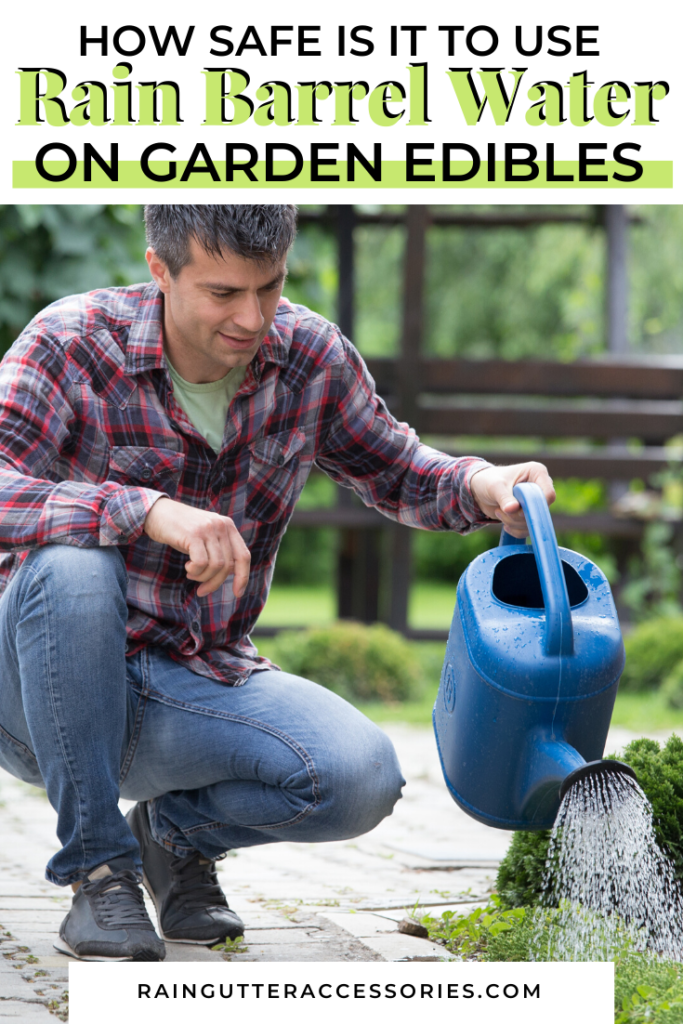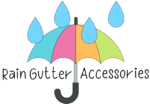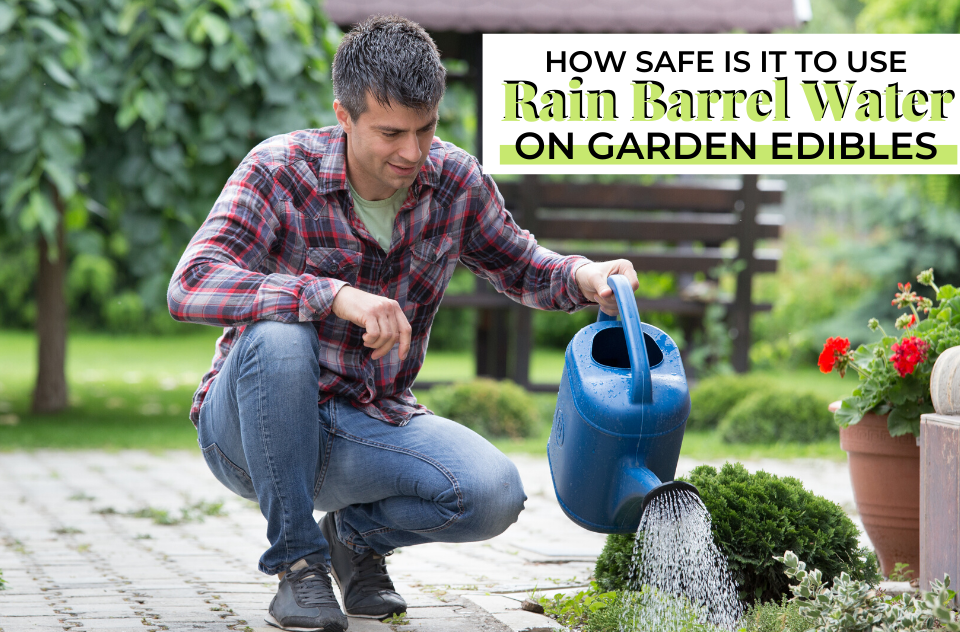Hey there Rain Barrel Enthusiasts…
Are you enjoying the rains as much as I am? And, while enjoying the downpours, I am also looking for ways to maximize the use of my rain barrels, as well as the rain barrel water.
I’ve been researching all about keeping my rain barrels clean, how to keep out the mosquitos and their larvae but I was curious about something else…
How safe is it to use rain barrel water on garden edibles?
There are researches claiming it is safe to use rain barrel water for vegetables. And, there are studies saying it should be avoided.
So, to water your edibles with rain barrel water or not… that’s the question.
The Washington State Department of Ecology (among many other prominent researchers) has measured rain barrel water for pollutants. According to their report, in most cases, the rain barrel water is safe to use for most vegetables and other edibles.
But, there are strings attached.
- In some cases, the water may be polluted beyond safety standards.
- Certain roof types pollute the water heavily.
- It is necessary to take the right safety measures.
Confusing…? I know!
Well, here is the problem…
The rainwater runs off the roof and travels down the rain gutters. During its journey, it gathers:
- Metals
- Chemicals
- Petroleum by-products
- Plastics by-products
Secondly, the roofs gather:
- Pollutants like bird poops
- Bacterial contaminants
Most researchers have found that the pollutant levels are fairly less, and the rain barrel water can be used for watering vegetable plants. But while that is true in most cases, it doesn’t apply to all cases.
To ensure the water in your rain barrel is safe, you need to consider a few factors:
1. Knowing your roof type is very important…
Wood-shake roofs pollute the water heavily than asphalt roofs. The runoff water from these roofs contained significant levels of pollutants.
Likewise, runoff water from copper roofs shows high levels of copper.
2. First ‘flush’ water is always more polluted…
When it rains after a long time, the water that runs off the roof will gather all the pollutants including bird poops and animal excrement. Compared to this first flow of water, the water flowing down from frequent rainfalls will be much less polluted.
3. The type of edible plant also makes a difference…
Some crops that receive rain barrel water showed higher levels of metal traces than others. For instance, a study found that when watered with the same rain barrel water, kale leaves had less level of lead compared to beet leaves.
4. Proximity of the crop to the polluted water/soil
Another important thing to consider is if the vegetable/fruit will grow above the ground or under. For instance, tomatoes will gather fewer pollutants from polluted water and soil than potatoes.
Takeaway from this…
Rain barrel water is safe to use for vegetables in most cases. However, make sure you are familiar with the relevant factors and variants. Considering all the above factors gets complicated for many people (and, understandably so).
For such people, I would recommend using water for ornamental plants only. But if you are really serious about using rain barrel water for vegetables, I have got the perfect tips for you.
Tips for Using Rain Barrel Water for Edibles Safely
- Cleaning rain barrels—clean the barrels before using them for vegetables and edibles. You can use a bleach solution for this step.
- Keeping gutters clean—debris can increase the chances of contamination. So, clean your gutters
- Using first-flush diverted—this will ensure the first flush of rain goes away from the barrel. If you are installing or replacing your rain gutters, this can be very helpful.
- Disinfecting rain barrel water— by disinfecting water, you can take care of bacterial contaminants and animal excrements. To do this, use 1-ounce bleach (8 drops), for every 55 gallons of water. Let it sit for 24 hours before using it.
- Watering tips—when watering, water the soil only, and not the plant or veggies. This is also a good gardening tip and keeps your edibles safe from pollutants too.
- Using vegetables and edibles—another important thing that you should always do when using rain barrel water with significant pollutant levels. Wash your vegetables and other edibles, and peel them before using them.

Bottom line…
Using rain barrel water for your garden is a great way of saving water. While you can safely use the rain barrel water for ornamental plants, using it for vegetables and edibles is a different case.
I hope this article answers all your questions about how safe it is to use rain barrel water.

